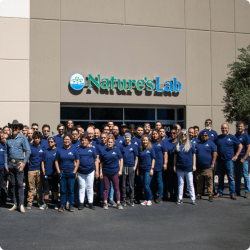


What is the Keto Diet?
The standard Keto diet is characterized by food proportions that are low carbohydrate, high fat and a mid-range amount of protein. This detail is one of the main features that separates Keto from the typical Atkins diet. It limits protein intake to about 10-20% of total calories whereas the Atkins diet allows 20-30% of total calories to be obtained from protein. The Keto diet’s goal is to induce a state of ketosis within the body. This is a complex biological process, however one of the activities it causes to occur is the use of fat instead of glucose for fuel. It is believed that this revved up fat-burning state, ketosis, is the reason why some see weight loss benefits with Keto and other low carbohydrate diets.* A standard Keto diet contains approximately 70-80% fat,10- 20% protein, and only 5-10% carbohydrates.
Nutrients and Weight Management

As people look for more efficient ways to lose weight, making careful choices with your diet and limiting calories is usually at the top of your priorities. Interestingly, one study found a link between nutrient intake and weight. It was discovered that being deficient in several nutrients increased the risk of gaining excessive weight by 80%.* This can be problematic for those dieting and eating less food since there are less opportunities to get the nutrients required for optimal health. Research comparing three popular low carbohydrate diets and one low fat diet found that all four were heavily deficient in vital nutrients. Keto dieters tend to consume more animal products and little to no fruit or grains which can be great sources of a variety of nutrients and antioxidants. If you are on the keto diet, be sure to supplement these nutrients to support your health goals.
Top Supplements For Keto Dieters

Biotin: Biotin is a B vitamin required for the breakdown of fatty acids for fuel. With the increased amount of fat consumed on a keto diet, your stores of biotin are more likely to be depleted.* A high quality multivitamin or supplement like Nature’s Lab Biotin, which contains 5000 mcg of biotin in one capsule, can help you fill this dietary need.*
Vitamin D: Most dairy products are fortified with vitamin D, however their high carbohydrate content does not mesh well with the keto diet’s food guidelines. Most keto dieters restrict carbohydrates to no more than 50 grams per day. Due to this, it is a good idea to make sure you get enough vitamin D through other food sources such as mushrooms and fatty fish (salmon, tuna) or opt for a supplement like Nature’s Lab Vitamin D3 Plus.

Vitamin E: Animal-based food sources are typically low in vitamin E so you may be missing out on this essential nutrient on a keto diet. Vitamin E is an antioxidant that influences cardiovascular health.* Lipid oxidation in the body can cause damage to blood vessels.* Vitamin E may support the body's antioxidant levels.
Folate: On keto it’s important to love your leafy greens like kale, romaine lettuce and spinach. These keto-friendly foods will be your best sources of folate since folic acid fortified grains and cereals would not be consumed on this type of eating plan. Make sure your multivitamin provides folate or folic acid to help you get enough of this nutrient.

Magnesium: Grains are the main source of magnesium in most diets, but with keto’s low carb stance, chances are you will not be able to meet your magnesium needs through food alone.* Most Americans, whether they are dieting or not, likely do not get enough of this macromineral in their diet.* Food sources for magnesium that are keto-friendly include pumpkin seeds, chia seeds and almonds. For supplements try Nature’s Lab Magnesium Soothe, a beverage powder that provides a tasty way to increase your magnesium levels.* It blends well with hot and cold beverages and has a refreshing lemon-raspberry flavor. For the convenience of capsules, try our Magnesium Glycinate formula.
Trace Minerals: Selenium, molybdenum, chromium and iodine are just a few of the trace minerals that are needed for general health and often lacking on a keto diet. The trace mineral chromium affects how the body uses glucose for fuel, making it of special interest for anyone on a keto diet.*

Antioxidants: Berries and different types of fruit contain plant pigments such as anthocyanins and other flavonoids that have beneficial effects on health. Supplements are an ideal way to get these healthy flavonoids without the added carbs. Nature’s Lab Tart Cherry provides the benefits of Montmorency cherries without the added sugar and diet-busting calories found in tart cherry juice.* Also, our Resveratrol Ultra provides a great source of antioxidants without the additional calories of drinking a glass of wine.*
Whether you are on a keto diet, or your own healthy eating plan, be sure you cover potential nutritional gaps with high quality supplements. Our Nature’s Lab Gold Six Daily Advanced Multivitamin contains over 90 ingredients to support your health including magnesium, biotin, folate, iodine, vitamin D, resveratrol, vitamin E, and chromium.
Shop our collection of Keto-Friendly Supplements today!
References
Popa, M.D, B. (2019, May 22). Thrive on the keto diet by avoiding these (common) nutrient deficiencies. Core Med Science. Retrieved March 10, 2023, from https://coremedscience.com/blogs/wellness/thrive-on-the-Keto-diet-by-avoiding-these-common-nutrient-deficiencies
Calton, J. B. (2010, June 10). Prevalence of micronutrient deficiency in popular diet plans. Journal of the International Society of Sports Nutrition. Retrieved March 10, 2023, from https://www.ncbi.nlm.nih.gov/pmc/articles/PMC2905334/
Pendergrass, K. (2022, December 26). How to avoid micronutrient deficiency on a ketogenic diet. Paleo Foundation. Retrieved March 10, 2023, from https://paleofoundation.com/micronutrient-deficiency-ketogenic-diet/







